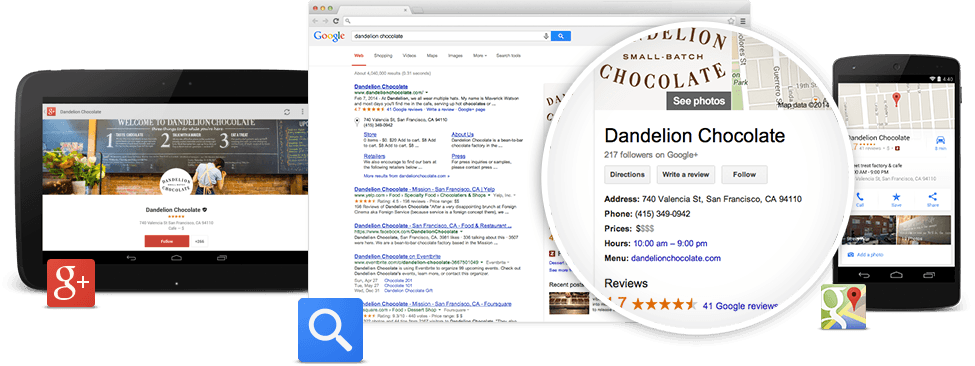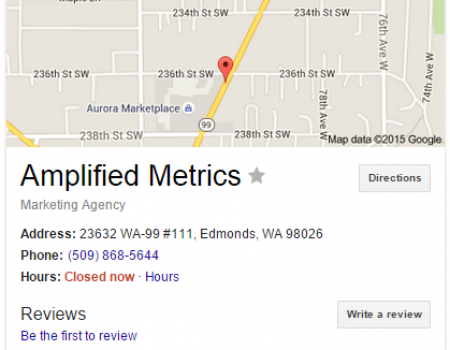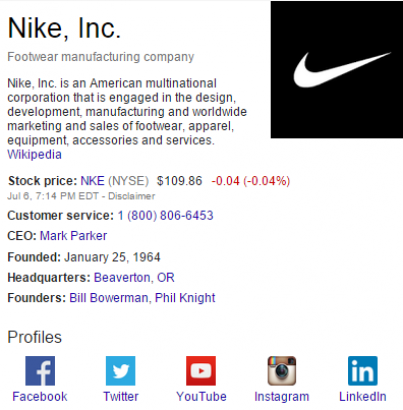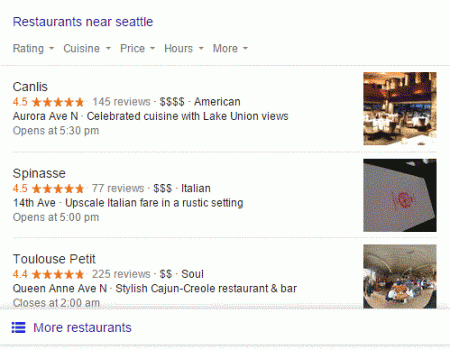For many local businesses, reaching geographically relevant traffic is essential to getting their customer base “through the doors.” Gaining visibility in local search results helps users find out about who you are, what you do, and most importantly where your business is located. Local Search Engine Optimization (SEO) is the process of optimizing your website and online citations to achieve higher rankings in local search page results.
Get Found Locally
Increase Foot Traffic
Promote Business Location
Encourage Customer Reviews
We offer local SEO search strategies that ensure the right on-page, social media, and review signals are being sent to search engines to maximize the local visibility of your business. By ensuring that users are able to quickly find detailed information about the physical location of the business, we increase the likelihood they complete an online order or visit the storefront in person.
We monitor the latest industry news and trends for local search so our clients stay up to date on the local search ecosystem and one step ahead of their competition. Be the leader of your “local search pack” with our proven strategies for cultivating local customer reviews, promoting social media interaction, and encouraging local foot traffic.
Don’t settle for being invisible to local customers – get found today!
The Anatomy of Local Search
At its core, Local SEO is about providing users with accurate and consistent information about a trinity of information referred to as NAP (business Name, Address and Phone number.) Creating, maintaining, and promoting this information is the key to local search success.


Google My Business
Local SEO begins with setting up a Google My Business account and getting the business address verified through Google. Once established, the business will appear on Google Maps and users are able to get directions to the physical location. Taking the extra time to enrich the My Business account with hours of operation, contact information, pictures and descriptions greatly increases the impact of the profile that shows along with your organic listings.
In addition to helping enhance brand presence the business profile makes it easy for users to leave reviews or quickly see recent social media posts. The frequency and quantity of both drastically help with local organic rankings.
Google Knowledge Graph
Google’s Knowledge Graph is used to enhance search results with semantic-search information which highlight various bits of information about the business from a variety of linked sources. It’s possible to customize how Google displays the Knowledge Graph by utilizing structured data within the source code of the business website.
The goal of this feature is to provide users with information about the business to resolve their query without having to navigate to other sites and assemble the information themselves.
We show businesses what steps to take in order to increase the chances of inclusion into this powerful branding feature.


Google Local Seach Pack
The local search pack appears below top paid AdWords advertisements but above all normal organic results. It’s comprised of the top algorithmically ranked local businesses pertaining to the users search query. Filters included on these results vary by industry but all serve the function of helping users make informed decisions about local business while streamlining the ordering or booking process.
According to Moz.com, local search rankings are influenced by over 150 known factors. We’ll help you identify where these opportunities exist to help you become the leader of your local search pack.
Lets Get Started
on your project
We focus strongly on function and usability and train you to manage your website as a business asset. We go to great lengths to assure your content is delivered in such a way that visitors can easily and intuitively find the information they seek, resulting in a pleasant and productive user experience.
REQUEST A QUOTE

